The SOWELA of even three or four years ago bears little resemblance to today’s revitalized school. New accreditation, campus improvements and additions, enhanced program offerings, and a new partnership with industry and the community have given SOWELA a new image — and a new place of importance in the area’s economic future.
Lagniappe recently held a roundtable discussion with some of SOWELA’s leaders to talk about the school’s changes, and what the future holds. Present were: Mike Kurth, former professor of economics at McNeese, and a columnist for Lagniappe; Neil Aspinwall, chancellor of SOWELA; Joseph Fleishman, SOWELA’s vice chancellor for economic and workforce development; Andre Farley, SOWELA’s executive director of enrollment management and student affairs; David LaFargue, SOWELA’s executive director of industrial technology programs; David Darbone, SOWELA’s executive director of facilities Planning and management; Paula Hellums, RN, MSN, SOWELA’s interim vice chancellor for academic affairs; and Charles Stewart, vice chancellor for liberal studies and education.
MIKE KURTH: There have been a lot of changes at SOWELA in the last few years. What do you want people to know about the “new” SOWELA?
NEIL ASPINWALL: We are still technical in nature, with programs such as process technology, nursing and aviation. However, we now consider ourselves a comprehensive technical community college, because in 2014, we were accredited by SACSCOC — the Southern Association of Colleges and Schools Commision on Colleges — and we now offer transferable Associate of Arts and Sciences degrees in the arts and in science, so students can come to SOWELA for their first two years of college, then transfer to schools like McNeese or LSU. This is not your granddaddy’s old trade school anymore.
CHARLES STEWART: Students who want to transfer to a particular program at a four-year institution can look at the course requirements of a program, and take only those courses at SOWELA that will transfer to the four-year school. So they won’t have to take or pay for courses they don’t need.
MK: And why would a student choose to take their first two years at SOWELA rather than a four-year university?
CS: The tuition at SOWELA is less, and we offer more transitional and remedial courses.
MK: Traditionally, community colleges offer two-year associate degrees, while technical and vocational programs are more focused, and lead to certifications. Does “wearing two hats” present any challenges for you?
JOSEPH FLEISHMAN: Being a technical community college makes us a comprehensive institution. We have technical programs for degrees; we have non-credit technical training for certification — machining, welding, millwright, for example — that prepares people for a job in industry; we have community education and continuing education; we have recreational education and lifelong learning. Whether you are 18 or 80, we have an education program for you.
ANDRE FARLEY: We educate for academic endeavors, for career endeavors, and for workforce endeavors.
MK: Do the certification courses for non-credit require classroom work, in addition to hands-on learning for a particular trade?
JF: Yes, they do. The HVAC program starts with 72 hours of core classroom work leading to certification with the National Center for Construction Education and Research.
MK: But do these students have to take traditional college courses, such as English and Math?
JF: Not necessarily. All classroom work is specific to the craft or trade.
MK: Are there vocational and technical courses that lead to a degree?
PAULA HELLUMS: We have technical programs for credit. We have a welding for-credit program, and we have a welding non-credit program, for example.
MK: So a student can go into a welding program and earn a diploma?
PH: Yes, they can earn a technical diploma. The LPN (Licensed Practical Nurse) program is another diploma program.
MK: Do students come into these programs on their own, or do they have to be sponsored by a particular company?
JF: Most come in independently, and they can do that because we’ve already connected with industry, so that we offer exactly what that industry needs. Which means most students enter a program knowing that before they finish, they will have a job waiting for them.
MK: How long does a certification course usually take?
JF: Each program is different. The structural welding program is compressed, and runs about 12 weeks. Our machining and millwright programs run about six months. The HVAC program takes two months. Industry comes to us and requests a very specific training program, which we deliver, whether it takes a week or six months. If (an industrial company) wants night classes, we offer night classes; if they want weekend classes, we offer them.
MK: What’s the cost for a typical certification program?
JF: Our structural welding program costs approximately $1,100. Our machining program costs approximately $2,980, and that’s a six-month program.
MK: What’s the cost for the degree courses?
PH: The total tuition’s about $1,850 per 12-hour semester.
MK: And you’re on a typical academic semester cycle?
CS: Yes, we’re on the semester cycle, with Monday/Wednesday/Friday classes, and Tuesday/Thursday classes.
MK: What about the certification programs?
CS: They don’t run on a typical academic calendar.
JF: As soon as one class is over, we start another one, whether it’s every 12 weeks or every six months. And we run through holidays and vacations. If a company wants classes offered at night, we offer them at night. If they want them on weekends, we have them on weekends.
MK: Do you need a high school diploma to go to SOWELA?
PH: Not for all of our programs. Students can go into the welding programs or the Certified Nursing Assistant certification program without a diploma, and we have adult education classes in partnership with the Literacy Council that don’t require a diploma.
JF: We will accept a high school diploma or a GED.
CS: And we offer remedial courses that will get students to a college level, and we can do that in one semester.
MK: What types of students do these programs attract?
JF: There are students who come to us and say, “I want a job, but I’m not willing to invest two years to become, say, a combo welder earning $25 or $30 per hour. However, I am willing to invest 12 weeks to become a structural welder and earn $16 per hour to start.”
AF: We also have those who have graduated from a four-year university, and come here looking for a career change.
JF: They may have graduated from a four-year university program — at LSU, Mississippi State, Texas A & M — with a bachelor’s degree, and enroll in a non-credit program at SOWELA to learn a skill and get a job. That happens fairly frequently.
MK: What’s the gender ratio of your students?
AF: Males outnumber females, because our programs are in mostly male-dominated professions.
PH: I would say the ratio is about 60/40 male/female. We are trying to market the traditionally male programs to females — the process plant technology program, and the welding and automotive programs, for example.
MK: Do you get many veterans?
AF: We have over 170 vets, only 10-20 less than McNeese. We just opened a new Veteran’s Center, and we are doing more advertising and marketing towards veterans.
MK: What about those in prison? The U.S. leads the world in incarceration rates, Louisiana leads the nation, and people coming out of prison face huge obstacles finding good jobs.
NA: Absolutely. We had programs at Phelps Correctional Center until that institution was shut down, and we are currently in negotiations with private companies to provide training for incarcerated persons.
JF: We’re working with the Sheriff’s Dept. to see what can be done to place these people in training programs so they can go right to work when released, and we’re also working with the Mayor’s recidivism committee. There’s a lot we’re working on in that regard.
MK: Many parents tell their children that if they want to be successful in life, they must go to college, and you have high school counselors who steer students with decent ACT scores away from vocational education. Is this changing?
PH: I think so. We make presentations at high schools, and the dual enrollment program that lets high school students earn college credit has also helped. Parents are beginning to realize that if their child comes to SOWELA, they can get a career, not just a degree.
NA: But the stigma still exists. We need to redefine what we mean when we talk about a college education. I’m a product of the university system; I believe in it. My youngest son is a sophomore at McNeese, and from the time he and his older brother were young, they knew they were expected to go to a four-year university. But a college education is not limited to a four-year degree; it can also be a two-year degree. Many parents in Southwest Louisiana are hearing about the high-paying jobs coming to this area, and they realize that just because these jobs are available, doesn’t mean their child is going to get one unless they have the appropriate education.
PH: I look at SOWELA as giving students hope. I see high school students who come to our career day and are interested in a career, but can’t get into McNeese or any other university, because their scores aren’t high enough. They find out they can come to SOWELA, take their remedial and transitional courses, and then transfer to McNeese. They couldn’t walk through the door of any four-year university, but they can go to SOWELA and still reach their goals.
JF: Its about access. Say you’re 25, you’ve been out of high school several years, and you want to go back to school because you want to earn more. But you’re rusty; you’ve forgotten math, writing and language skills. But you can come to SOWELA, take remedial courses, and have access to knowledge and a job that earns good money.AF: I think it helps that we can show a student that he or she will get a significant return on their investment in education. They can come to SOWELA, and in two years be making a very good salary. You don’t come here just hoping you’ll find a job after graduation; you know the job will be there, and how much you will be earning in two years’ time.
DAVID LAFARGUE: You see people graduating with a four-year degree, and they’re only making $30,000-$40,000 per year. Someone can come here, get a two-year degree, and start out making $60,000 a year. That’s a huge return on investment.JF: A while back, we had executives on campus from CB&I, a welding company for which we do training. A student asked one of the executives how much he could expect to be making in 30 years with a nuclear welding certification from our program. The executive said $250,000 a year. Too many parents still think you have to wear a suit and tie to work to earn that kind of money.
MK: What about campus life? What does SOWELA do to promote camaraderie and school spirit? That’s important to students, especially younger students.
AF: We have the student success building, where students can hang out; we’re looking forward to bringing in an athletic program, as well.
NA: Our students voted about two years ago to implement an added fee per credit hour to tuition, which gives us money for activities, clubs and events. We had none of that before; state funding for higher education isn’t very good in Louisiana. Our next step will be to start athletic teams. That’s going to be an expense, and it may have to be carried by the students if they want it.
MK: Do you think local industries will get behind some athletic programs at SOWELA?
NA: Maybe. Industry has been doing a lot of things at SOWELA lately, from new buildings to scholarship funds.
JF: In the new nursing building, and in the new arts and humanities building, there are areas for students to remain on campus while waiting for their next class, and we are building such areas into the new regional training center, as well. Our libraries are always full, and we’ve created a lounge area for students there. There’s a computer room that is always packed with students. So life is changing on the SOWELA campus.
DAVID DARBONNE: When I started here seven years ago, the campus wasn’t a place where you would want to spend much time. But we are embarking on a $60-$70 million plan for new facilities, and putting together a campus revitalization plan that includes walkways and areas where students can sit, and a student services center with a food court. The campus will no longer be somewhere you wouldn’t want your children to go.
MK: An attractive campus is vital to recruiting students.
NA: Yes, as people are seeing the campus improvements, the new facilities … its helping enrollment. A few years ago, enrollment was at 600-700; now it’s just under 5,000.
DL: I think the sense of community here is becoming one of the school’s strongest aspects. There’s a culture and connection here — among students, and between students and faculty — that’s not always found on a university campus.
JF: In regards to SOWELA’s relationship with industry, we’re beginning to see industry engaging this institution in ways we’ve never seen before. For example, last year Capital One Bank gave us $80,000 for scholarships in non-credit programs. This year, they gave us $70,000. The business and industry community is seeing what we do, and what we’re accomplishing, and they’re beginning to partner with us.
MK: What do you think the future of SOWELA will look like? The construction phase of this expansion will likely last five to eight years. The real change for SWLA will come when those facilities are up and running and staffed with permanent employees making six-figure incomes.
NA: While we’re adding new buildings and new programs to train for the construction phase, we have to think about our programs that will sustain the area after the construction — our aviation and automotive programs, our culinary program, and our computer technology programs.
DD: This is an opportunity for local people to get a certification, work in the construction phase of the expansion, get experience, and be ready to go to work permanently for whatever company they’re employed with during construction.
MK: Final thoughts?
NA: SOWELA is changing. We brought in a lot of experts with new ideas; I don’t mind stealing ideas from other schools if they’re getting it right, and it’s helped us grow. We’re adding new programs, new facilities, and upgrading our campus. We’ve changed a lot in two and a half years, and we’re going to change just as much in the next four years.



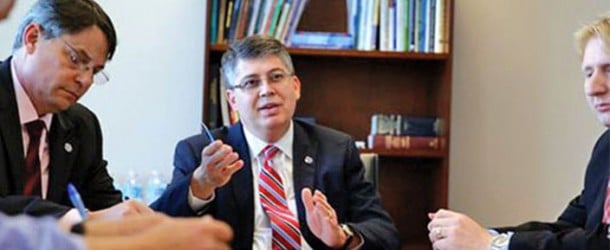
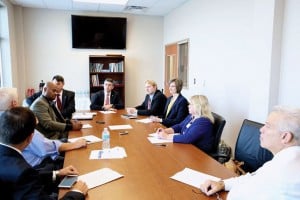
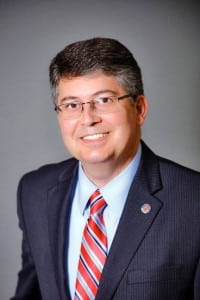
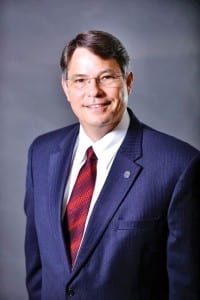
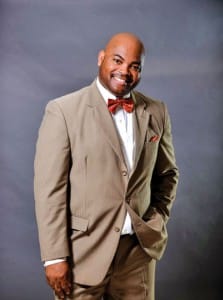
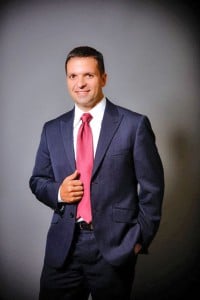
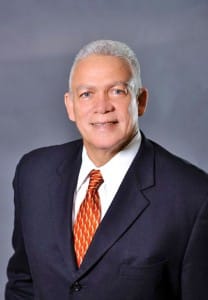
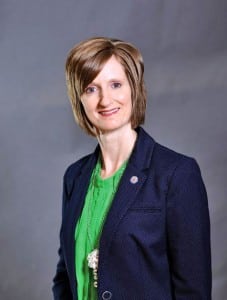
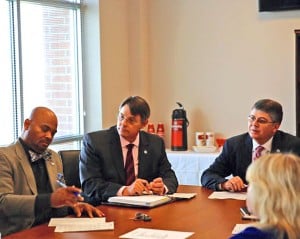
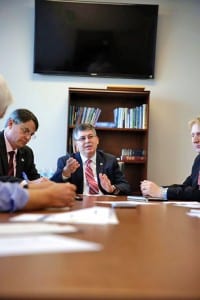
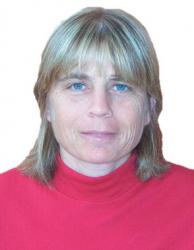











Comments are closed.